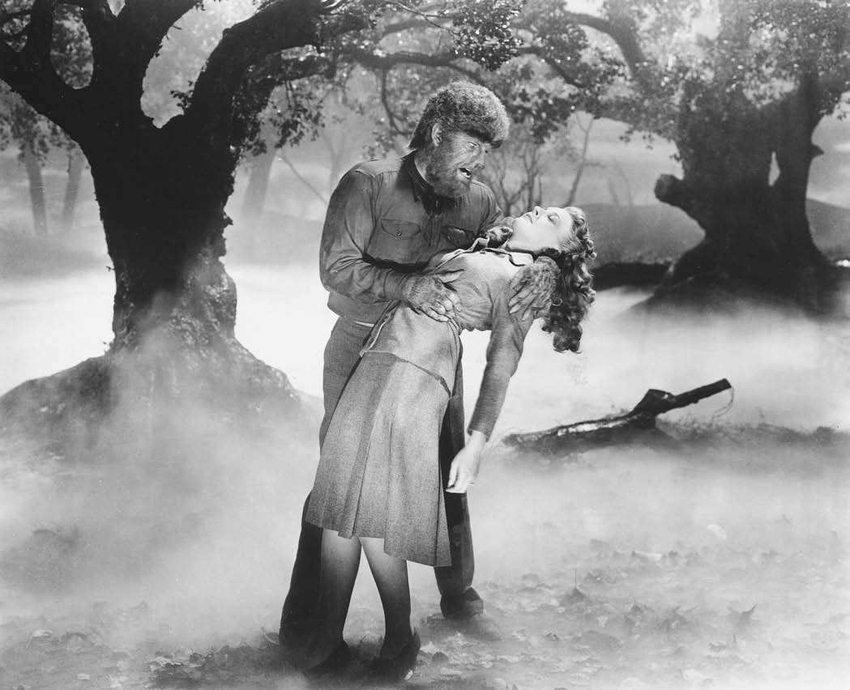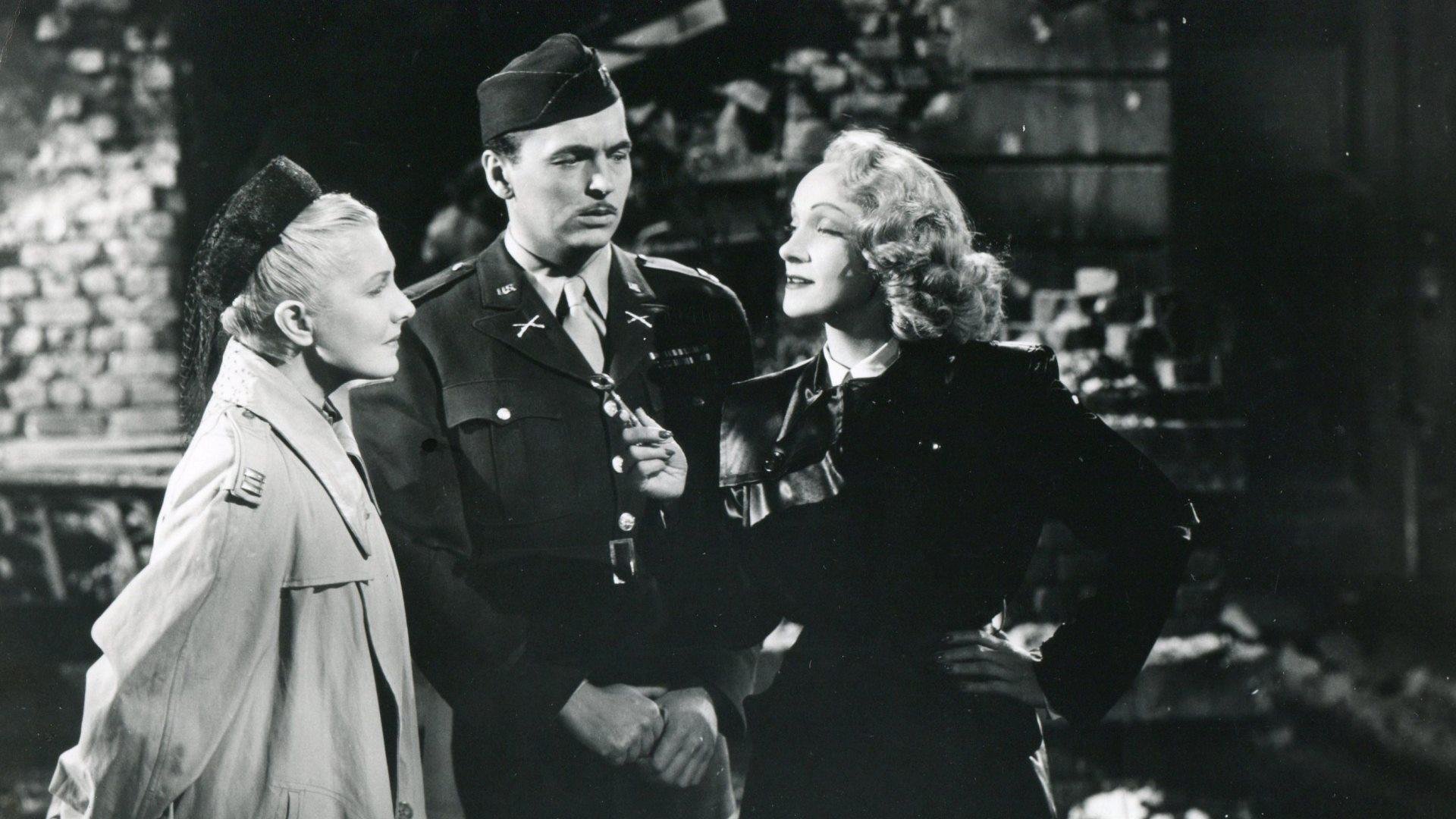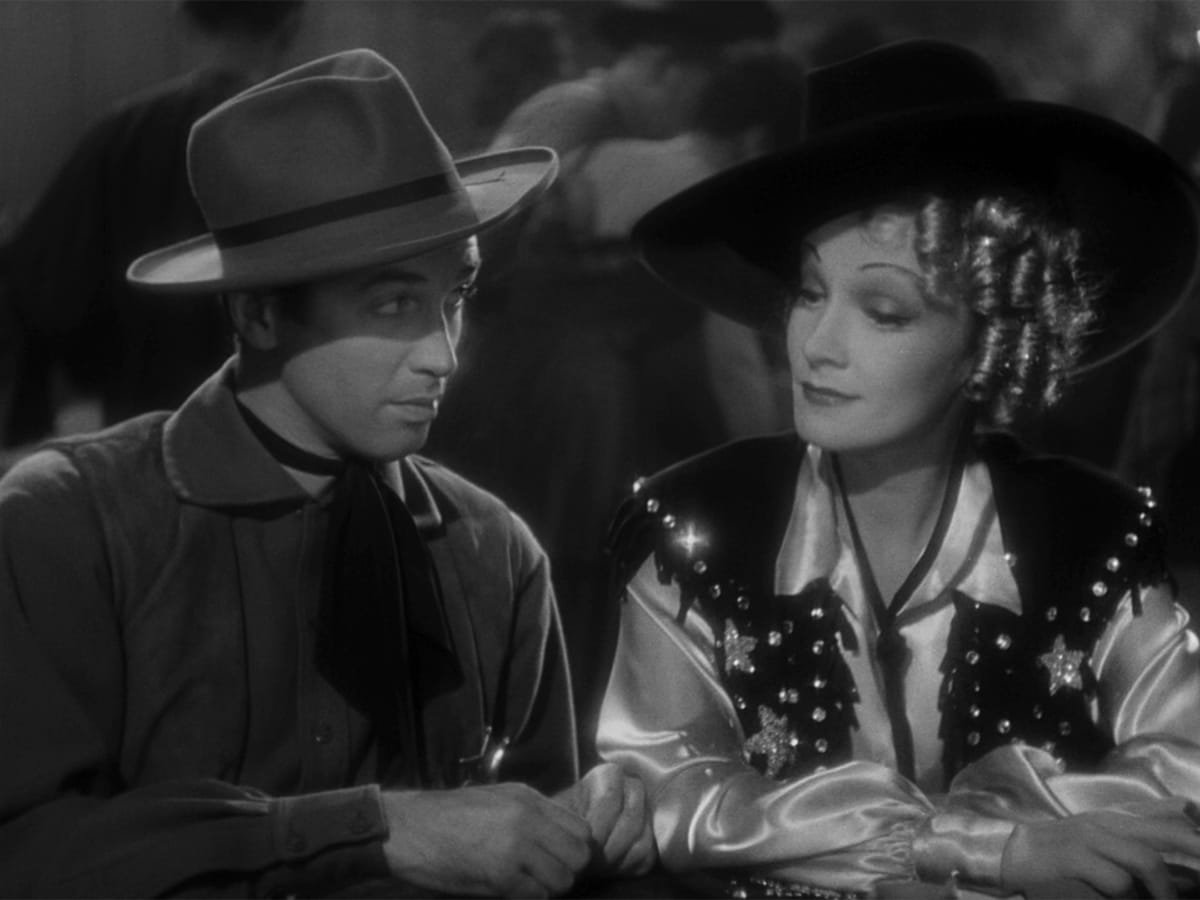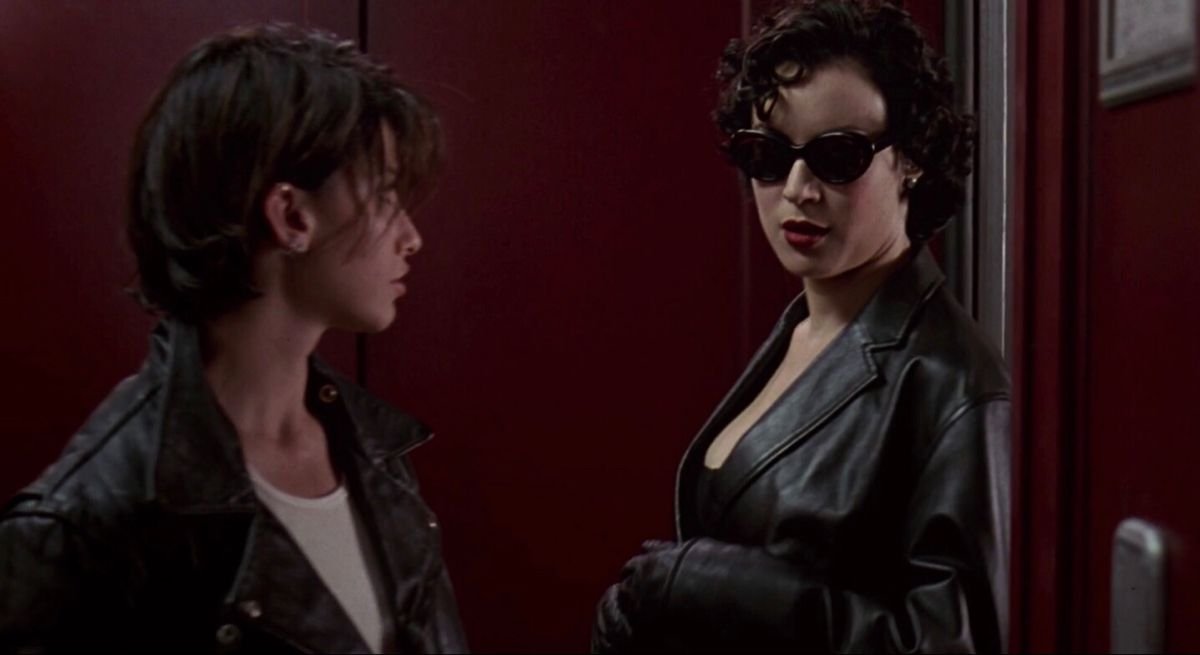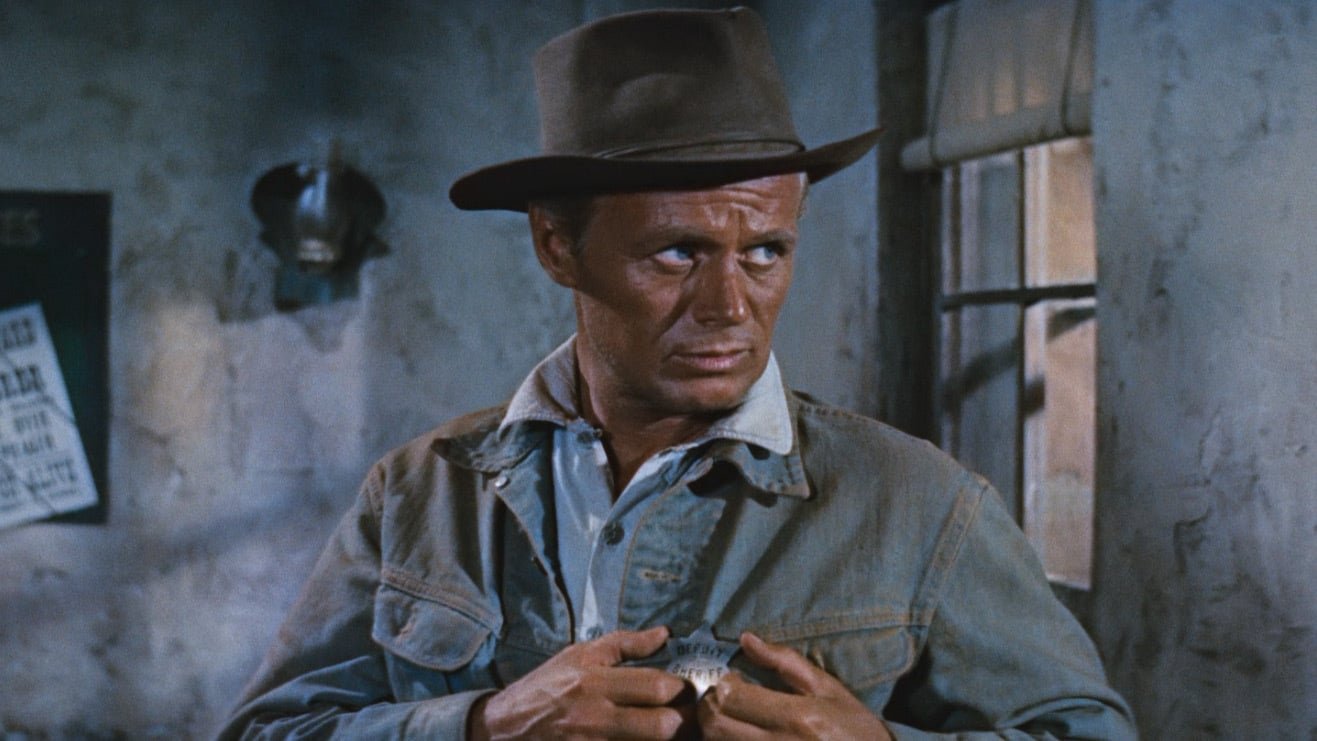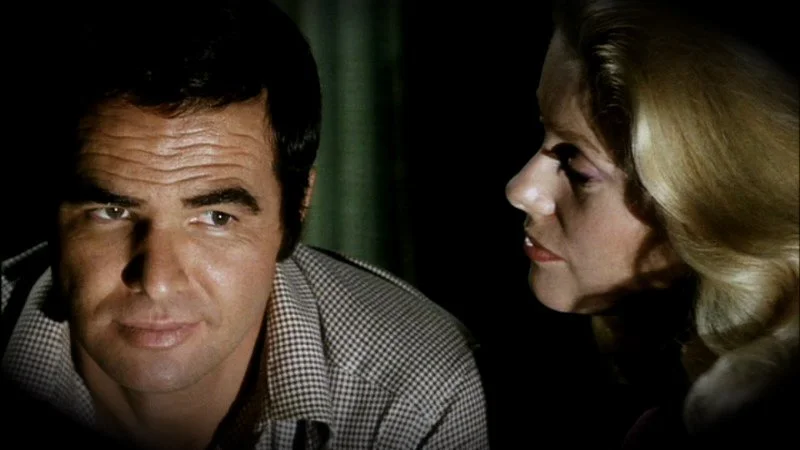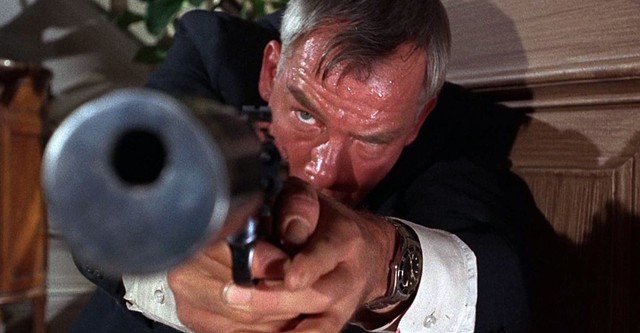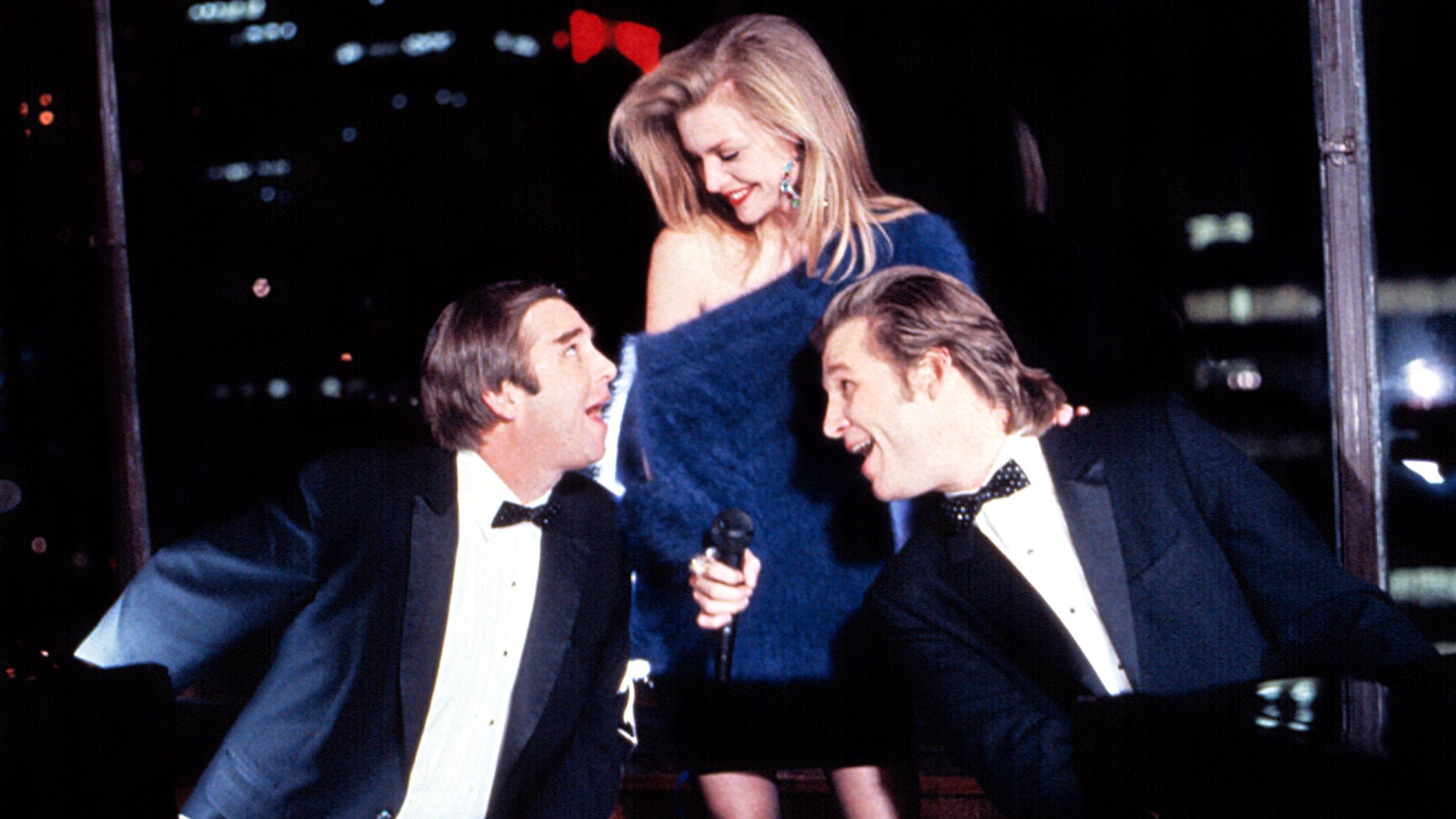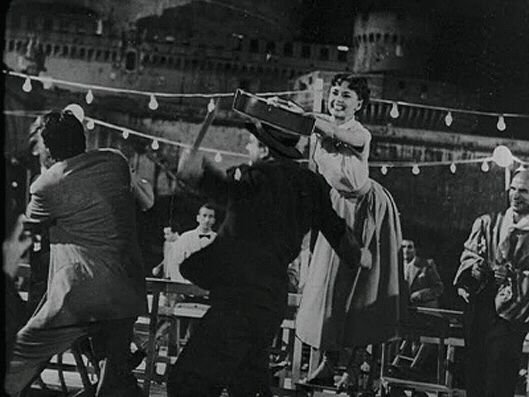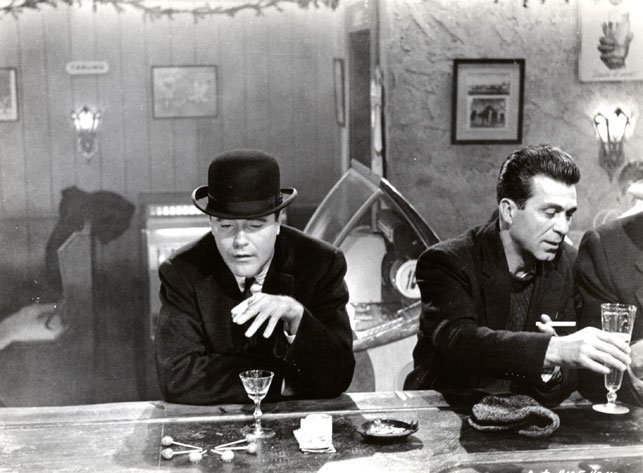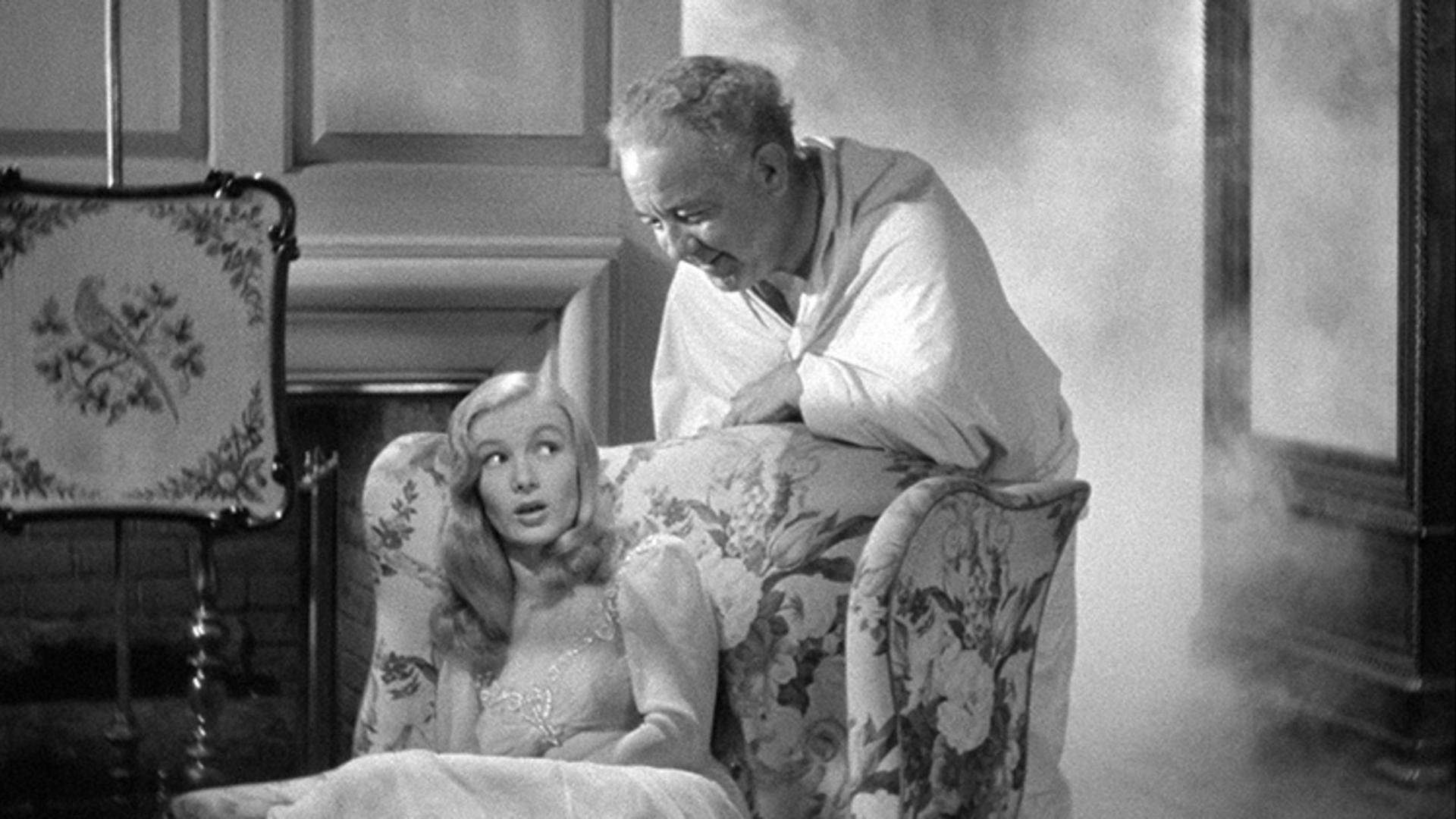I covered the South Korean films I saw in Part 1, and my most watched American actors, actresses, and directors in Part 2. Now we get to probably the most accessible piece of this series, digging into the best of the 201 American movies I saw in 2021. But first, let’s take our vegetables and look at a few of the worst.
BOTTOM OF THE BARREL
When you watch 201 movies from one country, a few of them are likely going to suck. Here are five movies that felt longer than the other 196 combined.
SUN DON’T SHINE (2012)
Attempts to combine the appeal of mumblecore and film noir by learning the wrong lessons from both. Boldly updating the flawed, unlikable character tropes of classic noir for a new generation by making them boring and insufferable as well, and applying the stumbly, relatable dialogue of mumblecore to characters so impossibly stupid and grating that you may yet believe they “talk like real people” if the only real people you’ve ever spoken to were having a loud, drunken, public argument in a Denny’s parking lot after being denied service.
THE MISFITS (2021)
When I say this movie is racist and unfunny, I don’t want you to think “Oh, it’s unfunny because it’s racist.” This assumes a cause and effect relationship that is not present. You could take all the racist stuff out and the movie would still be desperately unfunny. You could take all the unfunny stuff out and it wouldn’t be racist anymore, I guess. But at that point it would just be a blank screen.
THE TWILIGHT SAGA: BREAKING DAWN - PART 1 (2011)
This is the only Twilight Saga movie I’ve seen and it convinced me that nothing in my life is more important than keeping it that way.
WONDER WOMAN: 1984 (2020)
Sometimes, as a thought exercise, I try to think of a hypothetical Wonder Woman movie that would miss the point of the character more than making her a sexual predator who needs her dead boyfriend to tell her to do the right thing and also someone who’s plan to save the day is to take everyone’s dreams away. I have yet to succeed.
MACGRUBER (2010)
In every really shitty, bottom-rung comedy club, there’s one lifer comedian who bombs whenever he goes anywhere else or if there’s any non-comedians in the audience, but consistently makes the other lifer comics in that specific club laugh their asses off, because they’ve become so numb to actual comedy over years and years of hearing each other’s mediocre routines that this weirdo’s deliberate anti-comedy is the funniest thing in the world to them. He isn’t funny, but he understands the concept of funny well enough to intentionally do the exact opposite, and to people who are professionally bad at being funny, that comes off as really fucking funny. Which is a pretty sad life for that comedian, if you think about it, doomed to spend eternity doing the opposite of what he once felt inspired to do but wasn’t very good at simply for the approval of a bunch of burnouts and low-grade sex pests who aren’t very good at it either.
Anyway, that comedian wrote this movie and then somebody accidentally cast, filmed, edited, scored, and released it for public consumption, and cinema is all the poorer for it.
OLD FAVORITES REVISITED
Anything I’ve seen before isn’t eligible for the Top 10, but on the other hand if I watch a movie I’ve already seen, it’s likely because it’s excellent. I re-watched 18 American films this year. Here are six of the best.
The Wolf Man (1941)
Lon Chaney Jr. contemplates love—or is it lunch?
“Dad…Take the cane with you. Please. Just take it with you. Please.” The Wolf Man is a tremendous horror film of its era, with immersive, atmospheric sets, suitably haunting imagery, and great tension throughout, but what sets it apart from its peers is how many other things it is besides a horror movie. It’s a psychological meditation on the difference between who a man wishes to be and what he fears he actually is, a love story about the dangerous attraction of the unfamiliar, a cutting takedown of gossipy small towns and huffy men of privilege, and most of all, a character drama about an estranged father and son trying to understand each other for the first time in their lives. There’s an emotional heft to it that isn’t present in the same way in Dracula or Frankenstein because these characters have so much more on their minds than the monster, and that makes the horror all the more effective. There’s more at stake than just plain old life and death, as poor Lawrence Talbot (Lon Chaney Jr., monstrously sympathetic) stands to lose his last chance at a relationship with his father, his first chance at true love, and his own understanding of what it means to be Lawrence Talbot. Absolute masterpiece, even 81 years later, with a third act that approaches Shakespearean tragedy.
Abbott and Costello Meet Frankenstein (1948)
Dracula vs. Costello didn’t have quite the same ring to it.
Five movies later, Lawrence Talbot is still cursed, but his personal tragedy is now the backdrop for everyone else’s comedy. Joined by fellow horror heavyweights Dracula (Bela Lugosi, indelibly iconic) and Frankenstein’s Monster (Glenn Strange, not Karloff through no fault of his own), here Talbot finds himself teamed up with funnymen Bud Abbott and Lou Costello against the other creatures that go bump in the night. The movie is still scary, when called for, but is also one of the funniest films ever made. It accomplishes its humor by resolutely refusing to acknowledge it; the monsters play the film entirely straight. They are never in on the joke. Talbot is still a tortured soul looking for whatever sliver of redemption remains to him, Dracula still thirsts for the blood of the living, there’s just also a couple nearby morons wandering through their gothic melodrama. It’s a formula that has yet to be duplicated; every successful horror comedy since has made the horror itself part of the punchline. By treating the horror as horror, Abbott & Costello Meet Frankenstein creates a stark contrast between the macabre and the absurd, making the jokes funnier and the scares scarier.
A Foreign Affair (1948)
John Lund finds himself caught between a Republican Senator (Jean Arthur) and a Nazi collaborator (Marlene Dietrich), back when you could tell the difference.
The first time you watch A Foreign Affair you can’t help but notice what a relative nothing leading man John Lund is for a man in a love triangle with Jean Arthur and Marlene Dietrich. The second time you watch A Foreign Affair you realize that’s the point. Lund’s flawed everyman isn’t just caught between two beautiful women, he’s caught between the bracing, cynical realism of European survivor Dietrich and the naive, idealized myth-making of American Senator Arthur…just like any other American in Europe in 1948 might be. Neither is the “wrong” choice, necessarily, but he can’t have both; idealism and cynicism can have a conversation, but they can’t coexist. Heavy stuff for a romcom. Fortunately it’s couched in a movie so relentlessly funny in ways both charming and wicked, with a script so sharp you get papercuts through the screen, that you’re too busy laughing to dwell too much on the deeper philosophical ramifications.
Destry Rides Again (1939)
When Destry met Dietrich.
A gunfighter with no guns. A singer named Frenchie with a German accent. A Russian with an Irish name. Destry Rides Again is a movie about the difference between how things look (or sound) and what they actually are. Jimmy Stewart appears to be a coward, then a savior. Dietrich seems a huckster, then a hedonist. Watching the two of them peel those layers off each other is one of the film’s great pleasures. Its rich supporting cast, led by Brian Donlevy as the villain (a thug masquerading as a businessman) and Charles Winninger (a drunk reinventing himself as the town sheriff), is another. And there are endless others, from Dietrich’s song-and-dance to Dietrich’s vicious bar room brawl with Una Merkel to even delights which have nothing to do with Dietrich. The first time Destry (Stewart) actually lays hand on a gun after spending the whole movie avoiding them. The warped marriage in which the Russian Callahan fights not for the right to wear not just the pants in his relationship, but any pants at all. The way the villainous mayor meticulously stays within the literal letter of the law without ever really obeying it. The list goes on, and on, and if all the movie was were a collection of amusing quirks and pleasantly diverting subplots, that would be enough. That it gives us, in among its humor and heroics, layered characters we really end up caring about is what makes it more than that. That it also has so much of substance to say, not just about violence but about gender roles and justice and the perils of small town living, is what makes it a classic.
The Last Seduction (1994)
Linda Fiorentino gets her chiaroscuro on.
“You have a way of making a woman feel like a one-way train ticket,” says Linda Fiorentino, who’s both the woman, and the train ticket. The trick is that Peter Berg—and Bill Pullman, and Bill Nunn, and anyone else dumb enough to get in her way—are too busy looking at her to listen when she tells them things like that. Or maybe the problem is that they’re listening so intently that they’re not thinking. Another warning goes unheeded, when Berg says, incredulous, “Murder is commitment?” “When I’ve done it and you haven’t it is,” she shoots back. She isn’t lying. She’s committed, all right. Berg’s just too snowed to bother thinking to what. He’s not alone. It’s a story about men with money, or power, or guns, or just plain old lust who think they’re in control, and the woman who actually is. Watching their self-assured masculine arrogance wither under her scorn and scheming is one of the great indulgences of 90s neo-noir.
*Great as the movie is, it warrants a trigger warning for transphobia. Whether it’s actually punching down or not is a complex question, and one whose answer could vary between viewers, but better safe than sorry.
Bound (1996)
Ex-con Gina Gershon scopes out femme fatale Jennifer Tilly, and vice versa.
My hot take on the Wachowskis has always been that the less money you give them, the better movies they make. The Matrix Revolutions cost 150 million dollars and was a bloated, incoherent mess. The Matrix cost 63 million dollars and was a masterpiece. Bound cost 6 million. Take away all the CGI and kung fu set-pieces and all you’re left with is scintillating cinematography, devious dialogue, and pitch perfect performances. Bound has the intricate plotting and suspense of a Hitchcock picture and the pithy patter of a Chandler novel, and yet it’s entirely its own beast. Part of that is that it’s a noir starring two queer women (let alone made by two queer women) but more crucially it’s that it’s two extremely gifted storytellers with a very specific voice telling a simple story about three extremely specific characters: cagey ex-con Gina Gershon, faux-ditzy femme Jennifer Tilly, and her cunning-yet-clueless mobster husband, Joe Pantoliano. It’s career best work from everyone involved and one of the best neo-noirs of the 90s.
The Top 12
Given that I watched nearly double as many US films as the next closest country (201 to Korea’s 101), I’m cutting myself a little slack and expanding the US Top 10 to a Top 12 instead of trying to figure out how to cut two of these.
#12: Warlock (1959)
Richard Widmark dons a badge he’s surprised to find is exactly his size.
The best violence is emotional violence. Warlock has a couple gunfights—and they’re good—but none of their bullets much hold a candle to the look uppity hood Frank Gorshin shoots his brother Richard Widmark when he sides with the law, or the way Dorothy Malone spits the word “cripple” at clubfooted Anthony Quinn. She’s not really talking about his foot. But Warlock is a movie about the horrifying ordeal of being known, and Malone knows Quinn. Quinn, in turn, knows Henry Fonda, the badass marshal for hire that’s been brought in to clean up the town. Fonda think he knows Quinn, and himself, and might be wrong about both but he does know people, specifically the kind of people who hire him. The moment he first sets foot in town he accurately predicts every ensuing phase in that relationship, right up through the day they inevitably ask him to leave. He doesn’t know Dolores Michaels yet, who might give him a reason to want to stay. He also doesn’t know Richard Widmark, a member of the gang he’s been brought in to stop, but Widmark is unique among citizens of Warlock in that, to his horror, he knows himself. He knows where his line is, and when it’s been crossed. Early on, his gang crosses it. There’s an awful lot of tension wrung from what’s going to happen if Fonda crosses it too, but then there’s an awful lot of tension wrung from a lot of things. Malone’s history with Fonda and Quinn and her budding interest in Widmark. Quinn’s obsessive partnership with Fonda. Tom Drake’s gang of outlaws and their obsession with Warlock. The complicated dynamics between his underlings Gorshin and DeForest Kelly, and former member Widmark. The tension between who Widmark was and who he’s trying to be now, and the tension between who Fonda thinks he is and who Quinn knows him to be.
All those various tensions are resolved, in ways tragic and inevitable and heartwarming and surprising, by the time the credits roll. There’s plenty of excitement and emotional violence before they do.
#10 (Tied): Hustle (1975)
Burt Reynolds and Catherine Deneuve are as close as two people can get without making eye contact.
Burt and Catherine are in love. They’re not especially good at it, but they’re in love. Burt’s a cop, Catherine’s a call girl. They have an understanding about that, except when they don’t, as in a fantastic scene where Burt, fresh off telling her he’s not quite ready to marry her, sits glowering in the loveseat in the corner of their house as she conducts lazy phone sex with all the enthusiasm of writing a grocery list. Burt has other people in his life, too, like his blustery captain, Ernest Borgnine, who knows about Catherine and likes to threaten to have vice bust her just to be a dick. There’s also Burt’s partner, Paul Winfield, who doubles as the closest thing he’s got to a shrink or a priest. That’s lucky, since he needs both and wouldn’t be caught dead speaking to either. Burt and Paul get along because they share a taste for Bushmills, an understanding of how fundamentally broken the system is, and a reluctant obligation to try and uphold it anyway. There are other people who don’t understand, notably the parents of a dead girl who are convinced she was murdered. Burt’s pretty sure she wasn’t, but he also knows that she had ties to Eddie Alpert, a crooked lawyer who had something to do with getting Catherine her visa. Burt doesn’t want to investigate any deeper because he loves Catherine, but he insists on investigating in part because if he doesn’t then it proves just how much, and if he loves her enough to ignore the moral obligations of his broken job, then where does he get off judging her about hers?
All these people, and others, orbit around Burt, testing his cynicism and punishing his optimism, but there’s so much going on that he doesn’t really have time to stop, unless it’s for a drink with Paul, so he keeps putting off the big questions until he has no choice but to answer them. What makes Hustle so unique and satisfying is that those questions are mostly not about whodunnit, or whether the bad guy will be caught, but about who these people really are, and what they mean to each other, and what they owe to each other. What they ought to say to each other, and what they do instead.
After all, everybody’s got a hustle. Even Burt. He’s just too busy picking apart everyone else’s to realize it.
#10 (TIed): Point Blank (1967)
Point Blank is a movie about men who are stupid enough to piss off Lee Marvin. It isn’t very long.
For a movie with no actual jokes in it, Point Blank is extremely funny. It’s funny because it pits Lee Marvin, an unstoppable force of violent nature, against things like bureaucracy and logistics, and it gets funnier when it forces those things to react to him since he is, after all, unstoppable. “You’re a very bad man, a very destructive man! Why do you go around doing things like that?” an accountant squeaks at him after his latest outburst.
He goes around doing things like that, because he is Lee Marvin, and someone has stolen $93,000 from him, and he is going to keep hurting people until he gets that $93,000 back. One of the funniest things about the movie is how specific—and, on the scale of the corporation he’s mostly dealing with, insignificant—that amount is. But businesses are built to make money, not distribute it, and the limitations and greed inherent to that sort of an operation mean that Marvin will just have to keep hurting people.
Funny as it is, there’s a lot more to Point Blank, from the ingenious, Seijun Suzuki-esque stylistic flourishes to a spiteful Angie Dickinson figuring out the one way to actually fight a man like Marvin is to annoy him, to some gloriously chaotic and violent set pieces, to the various alternate interpretations that can be applied to both Marvin and his mysterious benefactor, to an amusing menagerie of villains, none of whom are even remotely a threat to Marvin, or even really presented as such. You’d think that would be a problem in a movie like this—even John Wick usually gets his ass kicked at least a little bit in the third act—but the only thing that’s a believable threat to Lee Marvin is a bigger, angrier Lee Marvin, and this Lee Marvin’s already about as big and angry as they come, so the appeal is not in seeing him tested or challenged but in seeing the world crumble around him over a measly $93,000.
#9: The Killers (1964)
The Killers is a movie about Ronald Reagan being stupid enough to piss off Lee Marvin. It is also not very long.
The Killers is a violent film, but also a sentimental one. Lee Marvin and Clu Gulager are vicious killers, but there’s genuine warmth between them, and Marvin even seems to have some belated empathy for John Cassavetes, their target. Cassavetes for his part is moody and tortured, captivated by the chemistry he shares with Angie Dickinson, who either loves him or likes him or doesn’t give a damn about him depending who’s telling the story at the time. Every version of her is convincing, except to Marvin, who’s too preoccupied to bother thinking about her any more than he has to. Gulager’s preoccupied, too, with money and with what it means to live the life he’s leading; he likes Marvin in part because Marvin’s already livcd it, and we sometimes get the feeling Clu hangs around him not just to learn from a pro, but to take care of him… and to see how it ends. Ronald Reagan plays the final major character, devoid of the nuance of the other four: he’s an asshole.
It’s a mystery, but not a murder mystery. We know who killed Cassavetes, and we know why, by the end of the first scene. The mystery is why he didn’t mind when they did, and what happened to the money they killed him over. Clu’s more interested in the second question, but Marvin—older and wiser, but growing tired—is compelled by the first one. And us? We’re interested in the killers themselves, and the strange little domestic interplay between them, and Cassavetes’ heart breaking in agonizing slow motion, and Angie Dickinson trying to figure which horse to back in real time, and a thousand other little genius character beats that tick by while Ronald Reagan stands there, a block of unlikable wood, dutifully waiting around for somebody to give him what he so richly deserves.
He gets what’s coming to him. So does everybody else, even when we wish they wouldn’t. Serves us right for getting sentimental.
#8: The Fabulous Baker Boys (1989)
Beau Bridges, Jeff Bridges, and Michelle Pfeiffer are The Fabulous Baker Boys… and Michelle Pfeiffer.
The Fabulous Baker Boys is about a pair of brothers who play lounge act piano covers of famous old songs so well known and oft-repeated that most people couldn’t tell you who sung them first. The movie is like that, too, dusting off the hoariest of cinematic cliches: the responsible brother and the reckless brother, the artist living an unfulfilling life of commercial compromise, and of course, the hooker with the heart of the gold.
But some cover songs are better than the original, benefitting from perspective and evolution, and The Fabulous Baker Boys is like that too. The brothers are more interesting played by real life brothers Jeff and Beau Bridges, bringing with them authentic comfort and deep, foundational resentment in equal measure. The unfulfilled musician has a little more heft to it when the sell-out path is still only barely enough to keep him in whiskey and rent, and he’s doing it out of familial obligation and self-loathing instead of just to pay the bills. When the hooker with a heart of gold is played by Michelle Pfeiffer, she’s no longer a tired, vaguely problematic stock character, but a breathing, feeling person with sharp edges and sharper eyes, and you want what’s best for her.
She’s also electric, giving one of those performances that would have instantly made her a star if she weren’t one already. Luminous, yet lived-in. Her character is tough, smart, talented, and like most smart tough people, more vulnerable than she lets on. She’s also just self-destructive and spiteful enough to make that vulnerability a big problem for herself. The Bridges brothers are sensational themselves, with Jeff wearing his self-hatred as hardboiled, laconic cool and Beau sculpting a delusional yuppie monument to his own marginal success. But they can only orbit Pfeiffer’s star, and the movie knows it. Hell, part of the movie’s about it.
And yet it’s their movie more than hers. Ultimately, it’s a movie about brothers, and the way only brothers can fight, and hurt each other, and understand each other…and then use that understanding for more fighting and hurting, which only leads to more understanding, and… well, you see where this is going. It’s the song that never ends.
The Fabulous Baker Boys is sweeter, and yet more bitter, than the old versions of the tune it’s playing. It has a depth of pain to it for all three of its principles, and even for its supporting characters: a young girl in Jeff’s building who sees him as a sort of adoptive cool uncle, and Jennifer Tilly as the comic relief, an apparent ditz that auditions for Pfeiffer’s job but sees more than the boys give her credit for. It would be a tragedy if every one of them didn’t also have a song in their heart, though Jeff’s cardiac jukebox is playing a different tune than his brother—or his singer—thinks. He’d probably be happier if he had the guts to sing along.
#7: Roman Holiday (1953)
Audrey Hepburn plays the hits.
Roman Holiday may be the most charming movie ever made. If it is, that’s one of its lesser accomplishments.
Audrey Hepburn in her first leading role delivers a performance so infectiously endearing that we easily believe it later on when not just slick reporter Gregory Peck (here giving better Cary Grant than Cary Grant ever did) but also his opportunistic pal Eddie Albert are both so fundamentally changed by spending time with her. What actually happens between the three of them is nothing too special on paper—they eat ice cream, and go dancing, and badly drive a Vespa—but magical in practice. It’s magic explicitly because it’s all so normal—the thing Hepburn’s princess been denied her whole life—but it’s normal operating in its highest, most perfect register. It captures the beauty of freedom, and friendship, and just having a goddamn day to yourself for once. More importantly, it captures how much more all of that means when you have someone to share it with; it may be all new to Hepburn, but they do nothing that Peck and Albert couldn’t do any other day, and indeed, haven’t already done a thousand times before. But they do it together, and that makes all the difference.
It really is perfect movie-making to land all that, let alone to land it all while also being so goddamn funny and furthering the personal arcs of all three principles. Albert’s happens so subtly you don’t even notice it’s been happening until he does, but once revealed—to borrow a phrase from Raymond Chandler—it seems to have been inevitable.
And then there’s the ending. To call it a merely great ending is an insult; it transcends great endings, and ascends to that highest cinematic plane, where it sits in the Pantheon of Perfect Endings alongside giants like Casablanca, The Third Man, and Double Indemnity. I’ve doubtless left out a few, but probably not so many that I couldn’t count them on my fingers. Like any other ending in the pantheon, it hits you with a half-dozen different emotions, all distilled to maximum potency, and from angles you never imagined. One stands out, though.
So happy, Mr. Bradley.
…Fuck. I rated this one too low, didn’t I?
#6: Mikey And Nicky (1976)
John Cassavetes and Peter Falk take a long ride to nowhere.
“A harrowing odyssey through the depths of despair and the darkness that comes from dudes just hanging out.” - Robert Peiffle
That review is perfect, and it’s especially fitting for me to quote it here, about this movie, because Robert is a friend, and the perfection of that review annoys me, much as the perceived superiority of Mikey’s life sometimes grates on Nicky. Next time I see him I’m gonna break his watch.
I don’t feel great about casting myself as the Nicky in the relationship, but I’m named what I’m named, and as awful as Nicky is I still might rather be Nicky than Mikey. Nicky just has to deal with being Nicky, which isn’t easy, but Mikey has to deal with being his friend, and that’s a whole lot worse.
”Do you know the difference between not believing in something and having a little respect for it?” an exasperated Mikey asks as Nicky jackasses his way through a cemetery at 1:00 AM in one of the film’s best scenes, inadvertently summing up one of their fundamental problems. Nicky believes in Mikey, but he does not respect him.
”Very hard to talk to a dead person. I have nothing in common,” Nicky says a few minutes later, summing up another one. Nicky is doomed. Nicky knows it, though he’s trying to beat the odds, and Mikey knows it, too. There’s a third line in that scene that sums up Nicky’s biggest problem, though that time he doesn’t know it.
If Nicky’s problem is that he believes in Mikey without respecting him, then Mikey’s is that he respects Nicky but doesn’t believe in him. They’ve been friends too long, too much has happened, and while they still love each other, that love has curdled with resentment and jealousy and sheer exhaustion. It’s poison to both of them. And yet… nobody quite understands Mikey like Nicky, and vice versa. Nicky knows this, and exploits it. Mikey knows too, though he tries pretty hard to forget it. Sometimes he almost succeeds.
But Nicky, with a joke or a jab, always reminds him. So they keep hanging out, and the odyssey goes on, though the destination keeps changing. And that’s the real tragedy: Nicky thinks he’s driving, but only Mikey actually knows where they’re going to end up. It’s up to him whether or not Nicky is worth saving.
Watching Mikey have to keep judging whether his best friend should live or die is painful. Watching Nicky inadvertently testifying against himself is so much worse, and yet the rare moments where he scores points for the defense hurt even more.
Mikey and Nicky hurts you in the way only your oldest friends can, when they’re not busy reminding you how much you love them, too, and how impossible it would be to ever find someone else who makes you feel seen and understood in the precise way they do. You won’t find another movie that makes you feel the way Mikey and Nicky does, either.
All from dudes just hanging out.
#5: The Apartment (1960)
Jack Lemmon is sexiled on Main Street.
One of the sweetest, funniest scenes in this movie full of sweet and funny scenes is a man recounting his own suicide attempt to cheer someone up. One of the saddest scenes in this movie full of sad scenes is a man successfully picking up a woman in a bar after an office Christmas party. These scenes, and a dozen others like them, are not funny or sad because of their subject matter, but because of how deeply we understand the characters in them.
The Apartment gives us three of the great movie characters. We have Jack Lemmon, as a pure-hearted sucker who’s smarter than most people (including him) think, trapped in a corporate purgatory he lacks the cynicism to recognize. Then there’s Shirley MacLaine, who has the cynicism, but unlike most movie cynics, wishes she didn’t, and keeps looking for ways to stop needing it. Finally there’s Fred MacMurray, who runs the company where Lemmon and MacClaine work, and is so cynical that it’s actually looped back around to optimism. If his mistress kills herself, well, at least then his wife won’t find out. On the other hand, if his wife does find out and kicks him out, well gee that’d just free him up to see his mistress. He’s capitalism incarnate, the kind of guy who can’t comprehend why someone would choose a girl over a promotion, even though there’s nowhere left for him to be promoted to.
The girl is MacLaine, of course, who’s MacMurray’s mistress. Lemmon’s in love with her, but she’s in love with MacMurray, with whom she has something important in common, since he’s in love with MacMurray too.
The plot is actually three plots. First we have Lemmon and his apartment, which he loans out to his bosses for their extramarital affairs and, well, MacMurray’s the biggest boss of all. Then we’ve got the relationship between MacLaine and MacMurray; she’d like to move on with her life, or in with him. He doesn’t like either of those options, so he keeps stringing her along towards the latter to keep her from doing the former, all the while checking his watch to make sure he’s back to his wife in time. Finally there’s Lemmon’s courtship of MacLaine, cautiously self-conscious and cute, which has its stakes unexpectedly raised when he finds her unconscious in his apartment after she’s finally had enough of MacMurray’s marital misdirection.
It’s a setup ingenious in its simplicity, aided by another of those razorblade Billy Wilder scripts, and it’s performed with such warmth by Lemmon and MacClaine (and such oily obliviousness from MacMurray) that you can’t help but be swept up in the way it functions as both tragedy and comedy, just like MacLaine sitting there smiling in spite of herself as Lemmon tells her about the time he tried to end it all.
Lemmon’s able to help MacClaine because he understands that the only difference between comedy and tragedy is in how you tell the story. So does Wilder, who’s so good at both that he doesn’t have to choose.
#4: Romancing the Stone (1984)
Kathleen Turner and Michael Douglas are less than thrilled with their travel arrangements, and each other.
There’s a specific stupid and sexist scene that’s in a lot of movies. A woman falls down, a man falls on top of her in a vaguely sexual position. The man usually gets bashful, or dumbstruck, and the woman either doesn’t notice or sheepishly looks away, and the audience is supposed to titter and leer like it’s somehow sexy. There’s a version of that scene in Romancing the Stone, but context is key. It happens during a mudslide, with Kathleen Turner hip-deep in mud, visibly and audibly terrified, and Michael Douglas doesn’t look bashful, he actively leers.
There’s nothing sexy about it, with both of them soaked in dirt and her panicking; it’s there to tell us that Douglas is an opportunistic scumbag. He won’t be by the end of the movie, because this is above all else a pulp romance, but right now he’s a creepy jerk taking advantage of poor Kathleen Turner. The movie is telling us exactly what it thinks of those kind of scenes: they’re dirty and scary and the men in them are bad people.
There’s another subversive thing about that scene. Normally when we get that scene, the man lands on top of the woman. Douglas lands on his knees, with his face between Turner’s legs. He’s not in the usual position of power there; he’s in a position associated with female pleasure, not masculine fulfillment. That’s also by design. While his character doesn’t know it yet, Douglas is in the movie to serve Turner, not vice versa. Everything in Romancing the Stone is from a female point of view, as opposed to the traditionally masculine Indiana Jones to which its too often compared.
Speaking of which, there’s an often-made critique of Romancing that it’s a shameless Raiders knockoff, but that criticism misunderstands both movies. Both draw on pulp roots, but Raiders is drawing on the two-fisted pulp action stories marketed to little boys, while Romancing is drawing on the kind of swarthy pulp romance marketed to adult women. Raiders is an adventure story; Romancing is a romantic comedy that happens to involve adventure.
It’s also got better characters, writing, and performances than Raiders. It can’t touch Indy’s action, but since it isn’t really an action movie it doesn’t have to; its action is only an engaging side dish, while Indy’s has to be a main course.
Instead of action, Romancing hinges on its two central performances. Douglas is perfectly scummy as the scoundrel male lead—and since he’s not the viewpoint character, and since Romancing is drawing on the tradition of those romance novels, he’s free to be legitimately a bastard, cutting a stark contrast to alleged scoundrels like Indy or Madmartigan or Han Solo who are perhaps a little mean or crass but fundamentally good people. For love to redeem him, as it must in these kind of stories, first he must be an absolute bastard in need of redemption, lying and cheating and extorting a woman to save her life, then stealing from her anyway. He is, so it does.
Opposite him is the film’s true main character, a repressed romance novelist dragged kicking and screaming into exactly the kind of bodice-ripping adventure she’s spent her life writing about. Kathleen Turner, playing triumphantly against her femme fatale reputation, is mousy and nerdy and overwhelmed… but also smart and self-possessed, the actual hero of the story. Romancing does better by its female lead than we’re used to seeing from these kind of movies, and it asks a lot of Turner to be able to do it. She delivers.
For any of this to work, we must buy the romance between them. We do, for a few reasons. First is that it grows organically from who these characters are, rather than from the sense of obligation that dictates most romances in adventure movies. Douglas is exactly the kind of man Turner has fetishized her whole life, the kind of man she invents and writes about over and over again. And she is exactly what Douglas needs, too. Someone smarter than he is, tough enough to hold him accountable and survive in his world, and yet someone who—because of where they meet, and when—needs him and can’t immediately walk away from his worst qualities. He recognizes, slowly, that he needs her too, and if he wants to keep her he will have to change. So he does, discovering he can put his bastardry to heroic purpose. Finally, and most of all, we buy it because Turner and Douglas have that mystical brand of acerbic movie chemistry that always works, like Bogart and Bacall or Lake and Ladd.
Theirs are the key performances, but they are supported by a killer supporting cast. Danny DeVito makes a meal of the kind of part Peter Lorre or Dan Duryea might have feasted on back in the 1940s, as the unluckiest man on the criminal totem pole, tasked by his alligator-obsessed brother (Zach Norman, also good) to do all the legwork in their criminal enterprise, and take all the blame. There is also, as there must be in these kind of stories, the evil foreign official (Manuel Ojeda), imposing and implacable, the dramatic villain to balance DeVito and Norman’s comedic ones. There is also Alfonso Aráu, as a local drug lord. His introductory scene is so funny, and so refreshing in the way it subverts our expectations of both the genre and his character’s place in it, that I dare not spoil it here.
All of this adds up to a movie that is successful as a straight-forward adventure, as a bodice-ripping romance, as an action comedy, as a subversive parody of all three, and as a blueprint for what those genres could be, if only Hollywood would let them. It pivots effortlessly from thrilling to funny to sexy and back a dozen times, and from snarky to sincere, with Diane Thomas’ script combining those elements into such a perfect alchemical balance that no movie since—including the sequel, Jewel of the Nile—has been able to replicate the formula.
It’s not Indiana Jones. It’s smarter. And more fun.
#3: I Married a Witch (1942)
Veronica Lake get a surprise visit from her drunken warlock father, Cecil Kellaway.
I Married a Witch does not have as much on its mind as most of the other movies on this list. While it’s a little racy for its day and a little cynical for how sugary it is, mostly it’s just on a mission to make you laugh and win your heart. It succeeds at both.
The premise is unusual, but not elaborate: a witch (Veronica Lake) and her father (Cecil Kellaway) are burned at the stake by a witch hunter, and place a curse upon his family that they shall only marry terrible women. When Lake and Kellaway escape the tree in which their souls are imprisoned, they decide to take a more hands on approach to messing with his latest descendent (Fredric March), a gubernatorial candidate presently engaged to one of those aforementioned awful women, in this case a spoiled socialite (Susan Hayward).
The movie really exists in three phases. First with Lake gleefully trying to destroy March, then sincerely trying to seduce him as he feebly protests, and finally facing off against her much more powerful father. All three phases are hysterically funny, in different flavors, and switching between them keeps the proceedings from ever getting stale.
Lake carries the whole thing on her back. She’s well supported—March is pleasantly flummoxed, Hayward finds the balance between awful and amusing, and Kellaway is a study in mirthful malevolence—but for the story to work, she has to be irresistible not just to March but to the audience as well. She succeeds in one of the essential comic performances. The film’s subject matter is so silly, and much of its comedy so broad, that it falls to her to keep everything on the rails. She succeeds. It’s not just her comic timing—which is as good as anyone’s—but all the things she doesn’t say, all the little smirks and micro-expressions and knowing glares from behind her signature peekaboo hairstyle*. The movie casts her as alternately villain, victim, and heroine, and she maintains absolute command of the screen in every incarnation. It’s iconic, immortal, lives-on-in-cinema-legend level stuff.
*Later stolen by Jessica Rabbit.
Ultimately, I Married a Witch is a film of modest ambition but elite execution. It runs only 77 minutes, but every single one of them is enchanting, and most of them are more than that. Lake’s minutes are the sort of minutes we go to the theatre hoping to see, and usually we’re thrilled if we get four or five of them in a movie. She gives us about fifty.
#2: Dangerous Liaisons (1988)
For Glenn Close and John Malkovich, conspiracy and seduction are synonyms.
“Love and revenge. Two of your favorites.”
A movie so impossibly good I spent the rest of the year chasing its high, watching five other versions of it in four different languages. Most were good*, some flirted with greatness, and if you took the best individual parts out of all five and synthesized them into the best possible amalgamation of those 600 or so minutes of mostly quality filmmaking it’d probably be fantastic…and still not as good as this version.
*Though Milos Forman’s Valmont is a bit of a disaster.
It starts with the casting. Not just the leads—Glenn Close, John Malkovich, and Michelle Pfeiffer all doing Oscar caliber* work—but a deep and talented bench including future household names Uma Thurman, Keanu Reeves, and Peter Capaldi, in addition to the always fun but rarely featured Swoosie Kurtz and the venerable Mildred Natwick.
*Close specifically was famously robbed, losing to Jodie Foster in The Accused, while Pfeiffer lost to Geena Davis in The Accidental Tourist, and Malkovich somehow wasn’t nominated at all.
They are aided by lavish production, inspired direction, and an eloquent script printed with venom in place of ink. The story begins with a request from Close; she would like Malkovich to seduce Thurman, who is engaged to a former flame of hers, as an act of revenge on her behalf. Malkovich is amused, but he would prefer to seduce Pfeiffer instead, as she is famous for her virtue and dragging her into sin with him would be his greatest act of depravity to date. This idea intrigues Close enough that a bargain is struck: if he can get Pfeiffer, he gets her too. And so it begins.
Reeves, Pfeiffer, and Thurman are fundamentally good people—or at least start out that way. Malkovich and Close are not. Both are brilliant, charismatic monsters, so nakedly vicious and clever we find ourselves rooting for them in spite of ourselves. They’re short on redeeming characteristics, but long enough on style and cunning to make up for it.
They are very nearly the same person, but for a few crucial distinctions. The two most obvious: gender and reputation. Everyone knows Malkovich is a cad, a notoriety he encourages, flaunts, and manipulates to his advantage. Close, by contrast, is a universally beloved and respected patron of the arts and a lady of impeccable standing. What only Malkovich knows is that Close is every bit as devious and hedonistic as he is. She maintains such a perfect facade of noble charity that she often ends up a trusted confidant even to her own targets, Iago in powdered wigs and floor length gowns. In Malkovich she has found a kindred spirit; it is not that either is necessarily immune to the other’s poison, but even scorpions need friends, and at least another scorpion might recognize that telltale arch of a tail that presages a fatal blow. Or not. Both are aroused by the idea of finding out, but not in any hurry about it.
They were lovers once, a long time ago, but now they are something much more intimate: co-conspirators. Perhaps they are still in love as well, but so strong are their respective self-images that even if they were, they’d never realize it. This becomes a problem later, when one of them actually does fall in love with someone, but only the other recognizes it… and quickly thereafter decides they don’t care for it, and begins playing a much more dangerous game.
The pawns on their board come in three flavors of virtue. First there is Thurman, naive and virginal, with no conception of the kind of world in which creatures like Malkovich and Close exist and therefore no defenses against it. Reeves, meanwhile, is at least vaguely familiar with the idea of evil, but he’s never confronted it. He possesses the sort of clueless chivalry of a man who’s never lost a fight or a woman, but only because he’s never had either. Finally there is Pfeiffer, who understands evil well and has built herself into its antithesis. She is devout, kind, generous, and all other things that Malkovich might use to destroy a lesser woman, but she possesses those traits in such quantities that even he cannot easily pierce her armor.
Dangerous Liaisons gets a lot out of that contrast between Pfeiffer and Malkovich. Some of the other versions misstep by making her too much a victim—which is already a role well occupied by the Thurman and Reeves characters—instead of a foil. Here she is every bit as virtuous as he is depraved, and every bit as strong as he is smart. It makes what happens between them exciting, instead of inevitable. There’s a real tension in whether he’ll succeed in making her worse, or she’ll succeed in making him better. Which of them ultimately wins that battle of the wills is a question the movie asks twice.
Close and Malkovich have a more nuanced war of the wills. While Pfeiffer vs. Malkovich is a battle of morals and ideology, Close vs. Malkovich is a battle of cunning vs. cunning, the two sharpest cerebral swords in Europe throwing sparks off each other. Both are keenly aware of how to strike their oldest friend where it would hurt the most—at her meticulously maintained reputation, or his chauvinist vanity. But those stakes are too high for a game between friends, so instead they bet her autonomy against his seductive prowess, but neither realizes until it’s too late those are still the same stakes, just with their warpaint on, and all the more dangerous for it.
Like love and revenge.
#1: Body Heat (1981)
He’s not too bright. She likes that in a man.
I defy you to find me another movie that gets as much mileage out of lingerie or riding crops as this one gets out of wind chimes.
Body Heat is a movie with a reputation that is both technically accurate and completely unfair: it’s the movie that feels like a classic noir, only they’re finally allowed to show all the sex that used to just be implied. The words in that description are true but the implication is not; namely, that the sexiest thing about Body Heat is the sex.
Which is not to suggest that the sex scenes in Body Heat are not sexy. Of course they are. They have William Hurt and Kathleen Turner in them. But Body Heat is a film so suffused with sensuality that nearly everything is sexy. Beyond wind chimes, here are some other things Body Heat makes sexy: snow cones, porch furniture, a white coat, old timey bathtubs, excessive humidity, the word “tending,” cigarettes, legal malpractice, a red skirt, Mickey Rourke, a certain seat in a shitty bar, gazebos, Pinehaven, repurposed eyeglass frames, arson, planning an unrelated second kind of arson, and Ted Danson tap dancing, somehow*. Oh, and murder.
*Ok, that one might just be me.
With the exception of maybe the cigarettes, those things are not normally sexy. Because so much of eroticism is based on the unknown or the forbidden or the unusual—doubly so in a film about adultery, the purest expression of that dictum—these things becoming sexy makes the actual sex—which is good even by sexy movie standards, but still something we’ve been sold before by a thousand other films—comparatively routine. It’s erotic, and exciting, but it isn’t intriguing. And in noir, nothing is ever sexier than intrigue.
Body Heat has intrigue to spare. Kathleen Turner wears it like jewelry, using it to accentuate whatever other features she’s advertising, and hiding it away when it doesn’t serve her. Even beyond her bijouterie, intrigue seeps into the oppressive atmosphere pervading the rest of Body Heat. There is intrigue in the character of Richard Crenna, who is described one way but appears another. There is more in the relationships between William Hurt’s indolent attorney and his only three friends: a policeman, a prosecutor, and an arsonist, all of whom have both sufficient loyalty to caution him against his baser impulses and ample motivation to punish him when he doesn’t listen. It’s not common for an entire supporting cast to be cornered into complex moral calculus, but Body Heat is not a common picture.
It is written and directed by Lawrence Kasdan, who had already written two of the most famous scripts in Hollywood history: The Empire Strikes Back and Raiders of the Lost Arc. The script for Body Heat is better than either, suffuse with serrated dialogue that works as entertainment the first time you hear it, and as literature the second. There’s not a misplaced word. Kasdan knows, too, that what is not said can be as valuable as what is. There are tremendous scenes between Hurt and Danson, Rourke, or Turner where what is said and what is most crucially expressed have little in common beyond their lips of origin.
The script is so strong it’s likely unfuckupable, but just in case, Kasdan directs the hell out of the movie, too. There is such a sense of atmosphere that you feel the suffocating humidity in your living room, and such heartbeat-precise pacing that 113 minutes pass between breaths. It ranks as one of the all-time directorial debuts, sophisticated in its sleaze, the priapic Citizen Kane.
Finally, there is the cast. William Hurt plays his lawyer not as a stupid man—though he often pretends to be—but a lazy one who’s secretly smart enough to be disappointed in a world that so often lets him get away with barely trying. He has met the world he lives in at its level, but with contempt, as he once expected a lot more from both of them. His two closest friends—Ted Danson and J.A. Preston—share his cynicism but not his apathy. They approach him differently. Danson engages him with aggressive camaraderie and warmth just fidgety enough so we understand how much Hurt’s self-actualized ennui annoys him beneath all his smiles and dirty jokes. Preston, meanwhile, treats him with detached wisdom and cool caution; a big brother tired of having his good advice ignored, but loyal enough to keep giving it anyway.
On the other side of the morality fence, Rourke is such a livewire in his two scenes as Hurt’s arsonist client-turned-buddy that it turned him from character actor into leading man nearly overnight, while Crenna plays Turner’s husband with the relaxed menace of a jungle cat that’s already sated on caribou for the day, but could be inclined to bat around some smaller prey if it wandered conveniently nearby.
Turner is not small prey, but neither is she an apex predator like her husband. She is an ambush hunter, appearing to be one thing and only revealing herself to be another once it’s already too late for her prey to escape. We know almost as soon as she steps on screen that Crenna will be her victim; that’s what husbands in these kind of movies are for. What we don’t know is whether she sees Hurt as prey, mate, or both.
It’s a tricky performance. She must first be so sexually compelling that we believe Hurt would kill for her, then she must also be sufficiently amoral to allow it, and enough so that we suspect she may also be bad news for Hurt… but also vulnerable, affectionate, and human enough that she may actually care for him, too. Their chemistry—and they have more of it than even the most over-funded pharmacologist—helps, but it’s up to Turner to play both angel and devil, in concert, in a way that never cheats too far in either direction. If she is too sinister, then the couple loses our sympathy—which they don’t deserve to begin with, but have stolen from us with passion and pith. If instead she is too sincere, then she loses her power, and the movie will stall.
She strikes the balance, creating an immortal movie siren in Matty Walker, a woman who is both so fiercely independent and powerful that we never for a second believe she needs a man, but lonely and wistful enough that we also believe she might like to have one anyway. It is easy to convince us that Hurt needs her—we have eyes, after all, and even if we didn’t we’re no more immune to Turner’s deep, smoke-in-a-speakeasy voice than he is—but she also convinces us that she sees in him something worth risking herself to get. Their first three scenes together are sorcerous, spiriting us along on her journey from apathy to amusement to anxiety and finally to amour so gracefully and with such panache that it feels simultaneously authentic and oneiric; she is the most real dream Hurt could possibly have.
There is more to the story, of course. It hides puzzles in its clues and clues in its puzzles; scenes work one way the first time you see them, and reveal new intricacies each time you go back.
And you will go back, because Body Heat is one the smartest, sexiest, and seediest movies ever made.
It’s also one of the best.
APPENDIX: THE WHOLE DAMN LIST
Here’s all 201, for the curious. Arranged by star rating. Anything over 3.5 is probably worth your time, and anything over 4 is really worth your time.
★★★★★
Perfect Movie
Body Heat (1981), Dangerous Liaisons (1988), The Wolf Man (1941), Abbott and Costello Meet Frankenstein (1948), A Foreign Affair (1948), I Married a Witch (1942), Romancing the Stone (1984)
★★★★³/⁴
Transcendent
The Apartment (1960), Destry Rides Again (1939), Mikey and Nicky (1976), Roman Holiday (1953)
★★★★¹/²
Must See
Bound (1996), The Fabulous Baker Boys (1989), His Kind of Woman (1951), The Killers (1964), Hustle (1976), Sahara (1943), The Narrow Margin (1952), Point Blank (1967), Warlock (1959), El Dorado (1966), Rio Bravo (1959) The War of the Roses (1989), The Mark of Zorro (1940), Sabrina (1954), Crimes of Passion (1984), Two Rode Together (1961)
★★★★¹/⁴
Excellent
Stray Dolls (2019), Death Takes a Holiday (1934) Twilight (1998), Destroyer (2018) Cape Fear (1962) Bunraku (2010), Dirty Work (1998), Hombre (1967), Blood and Sand (1947), Death of a Gunfighter (1969), The Left Hand of God (1955) The Roaring Twenties (1939), Angels With Dirty Faces (1938), The Trap (1959), The Friends of Eddie Coyle (1973), Thieves' Highway (1949)
★★★★
Superb
Body Double (1984), Kill Me Again (1989), Smokey and the Bandit (1977), The Locket (1946), Night Moves (1975), Happy Death Day (2017), Choose Me (1984), Down With Love (2003), Road to Perdition (2002), Suture (1993), Gunfight at the O.K. Corral (1957), Nightmare Alley (2021), Die Hard (1988), After Hours (1985)
★★★³/⁴
Great
In The Cut (2003), The Harder They Fall (2021), Gambit (1966), Hell's Half Acre (1954), Spider-Man: No Way Home (2021), One False Move (1992), Star Wars: The Last Jedi (2017), Slattery's Hurricane (1949), Somewhere in the Night (1946), Ride Lonesome(1959), Gator(1976), Yellow Sky (1948), 3:10 to Yuma (1957), Hangover Square (1945), Johnny O'Clock (1947), The Killing of a Chinese Bookie (1976), I Care A Lot (2020), Alias Nick Beal (1949), Swashbuckler (1976), Trouble in Mind (1985), Cotton Comes to Harlem (1970), The Last Wagon (1956), The Grifters (1990), Across 110th Street (1972), The Woman in the Window (1944), Happy Death Day 2U (2019), Lonely Are the Brave (1962)
★★★¹/²
Very Good
Gloria (1980), The French Connection (1971), Run for the Sun (1956), Calcutta (1948), White Lightning (1973), The Quick and the Dead (1995), Chinatown (1974), The Russia House (1990), Madigan (1968), Only Lovers Left Alive (2013), The Flame of New Orleans (1941), The Librarian: Quest for the Spear (2004), Ramrod (1947), Peggy Sue Got Married (1986), Niagara (1953), The Garment Jungle (1957), The Set-Up (1949) Shamus (1973), Sharky's Machine (1981), Nobody (2021), Silverado (1985), The Racket (1951), Intolerable Cruelty (2003), Manhunter (1986), Alto (2015), Dangerous to Know (1938), The Bedroom Window (1987), Farewell, My Lovely (1975), The Long Goodbye (1973), Garden of Evil (1954)
★★★¹/⁴
Good
Blow Out (1981), Spellbound1945Swoon (1992), 88 (2015), The Adventures of Robin Hood (1938), The Lodger (1944), The Fan (1981), The Jagged Edge (1985), The Beast With Five Fingers (1946), The Wolf of Snow Hollow (2020), The Black Swan (1942), Cry of the City (1948), Shirley (2020), High Noon (1952), Crimson Peak (2015), Uncut Gems (2019), The Velvet Touch (1948), The Muppet Christmas Carol (1992), Upgrade (2018), Homicide (1991), Black Widow (1954), Thunder Road (1958), Eighth Grade (2018)
★★★
Fun But There’s Some Flaws
Freaky (2020), My Darling Clementine (1946), To Die For (1995), The Desperate Trail (1995), The Towering Inferno (1974), Prizzi's Honor(1985), The Sisters Brothers (2018), Widows (2018), Naked Spur (1953), The Girl With the Dragon Tattoo (2011), Fatale (2020), V.I. Warshawski (1991), No Man's Woman (1955), Gunpowder Milkshake (2021), Hot Rod (2007), The Las Vegas Story (1952), Against All Odds (1984), Framed (1947), Cutter's Way (1981), Eyes of Laura Mars (1978), Klute (1971), Tequila Sunrise (1985), The Librarian: Return to King Solomon's Mines (2006), True Grit (1969), The Sainted Sisters (1948)
★★³/⁴
Flawed But There’s Some Fun
The Presidio (1988), The Way West (1967), The Shining (1980), He Ran All The Way (1951), Shang-Chi and the Legend of the Ten Rings (2021), Fast & Furious: Hobbs & Shaw (2019), The Jewel of the Nile (1985), The Moonshine War (1970), Johnny Reno (1966), The Cobweb (1955), The Onion Field (1979), Wet Hot American Summer (2001), Mystery Ranch (1932), Valmont (1989), Apology for Murder (1945), Into the Night (1985), Brenda Starr (1989)
★★¹/²
Watchably Mediocre
The Company She Keeps (1951), Singapore (1947), Black Widow (2021), Fighting with My Family (2019), Vampire's Kiss (1988), Who Killed Gail Preston (1938)
★★¹/⁴
Part Of It Works, Most Of It Doesn’t
Jade (1995)
★★
Just Bad
The Paleface (1948), Borat (2006), The Counselor (2013)
★³/⁴
Quite Bad
The Mummy: Tomb of the Dragon Emperor (2008), Lucky Day (2019), The Librarian: Curse of the Judas Chalice (2008)
★¹/²
Stinks Out Loud
The Old Guard (2020)
★
Technically Still A Movie, I Guess
Marauders (2016)
³/⁴★
Terribad
Amazing Spider-Man II (2014), Sun Don't Shine (2012)
¹/²★
Watching These Is Self-Harm
The Misfits (2021)
¹/⁴★
Crimes Against Man, God, & Cinema
The Twilight Saga: Breaking Dawn - Part 1 (2011), Wonder Woman 1984 (2020), MacGruber (2010)


